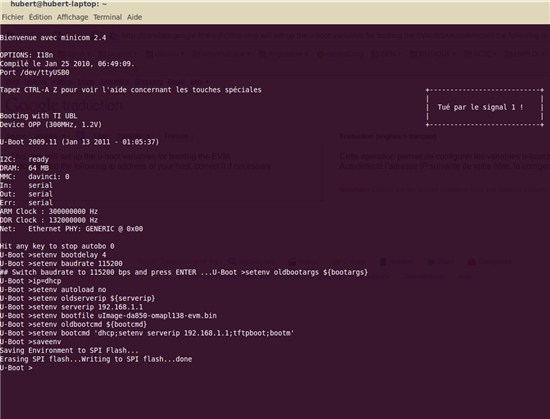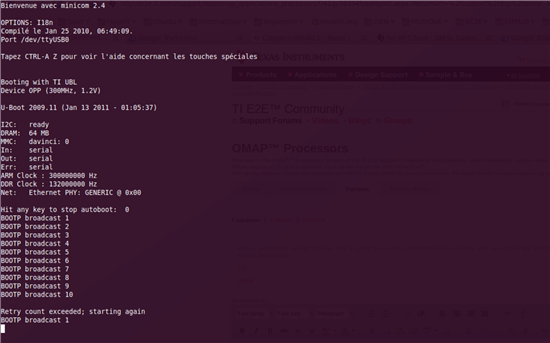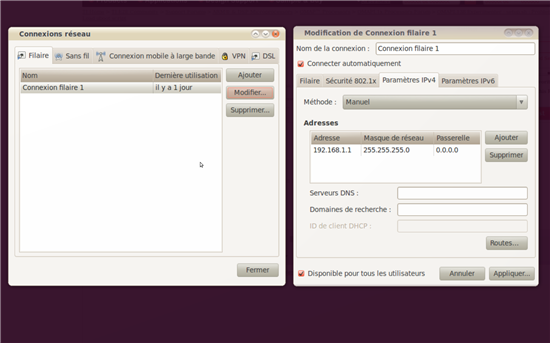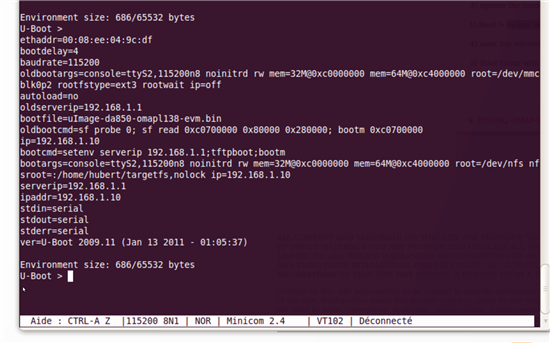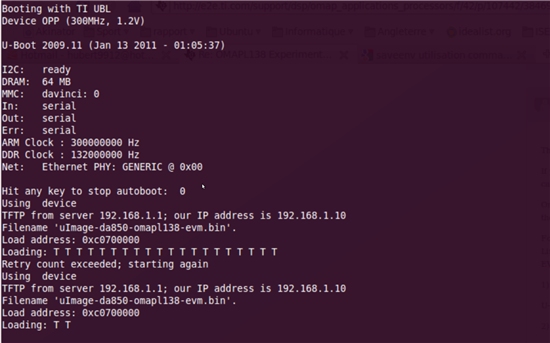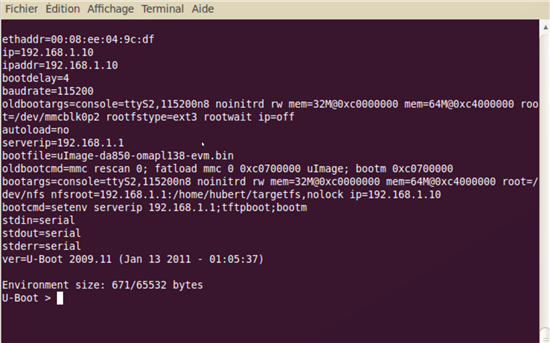Hello,
I wish to configure my SDK with the Environment Setup Script (setup.sh).
However, after completing the various steps of the Setup Script, this one fail during the Load Script uboot.
I folow The OMAPL138 Software Developers Guide and I do not really understand how to solve this problem.
